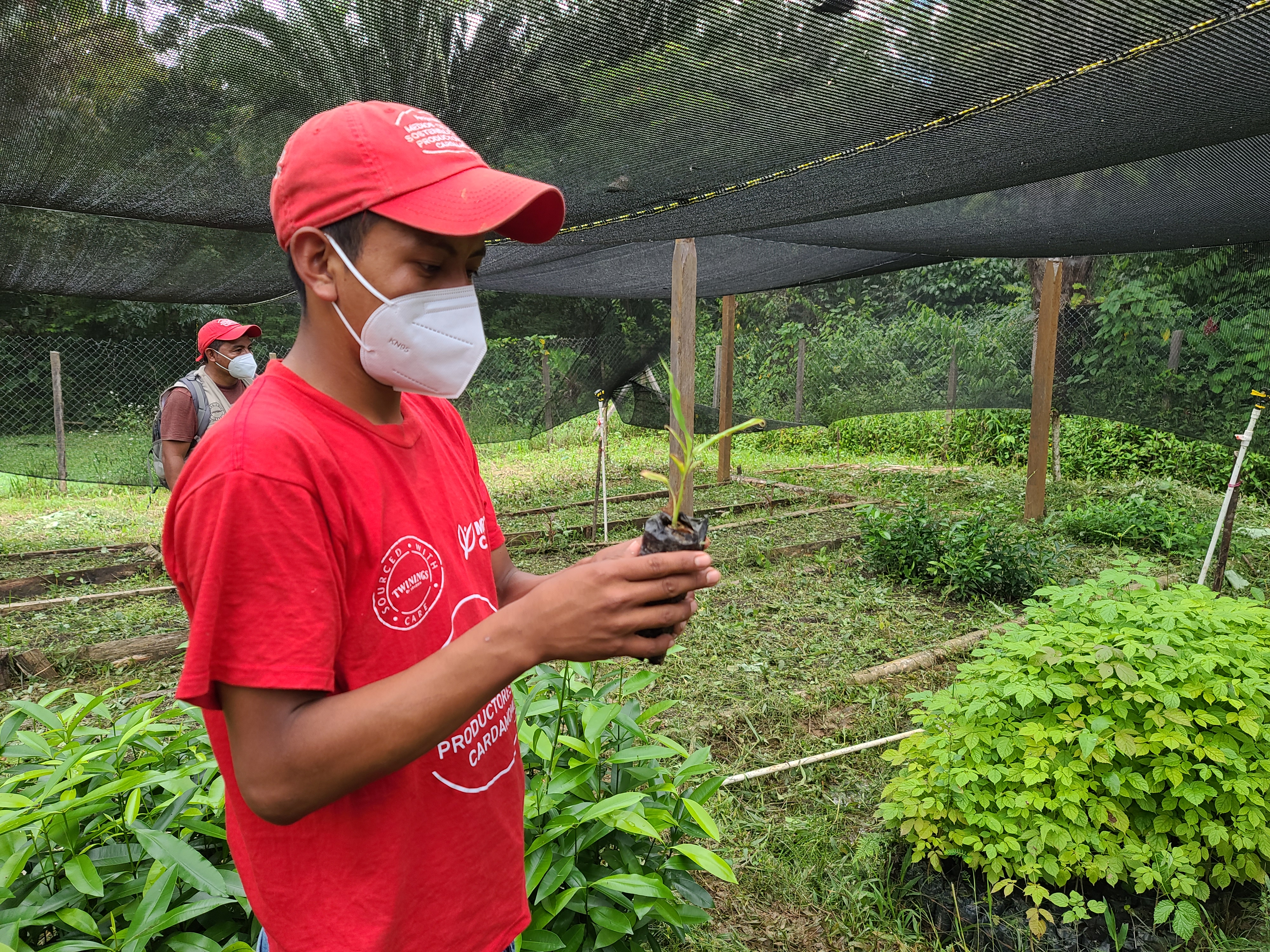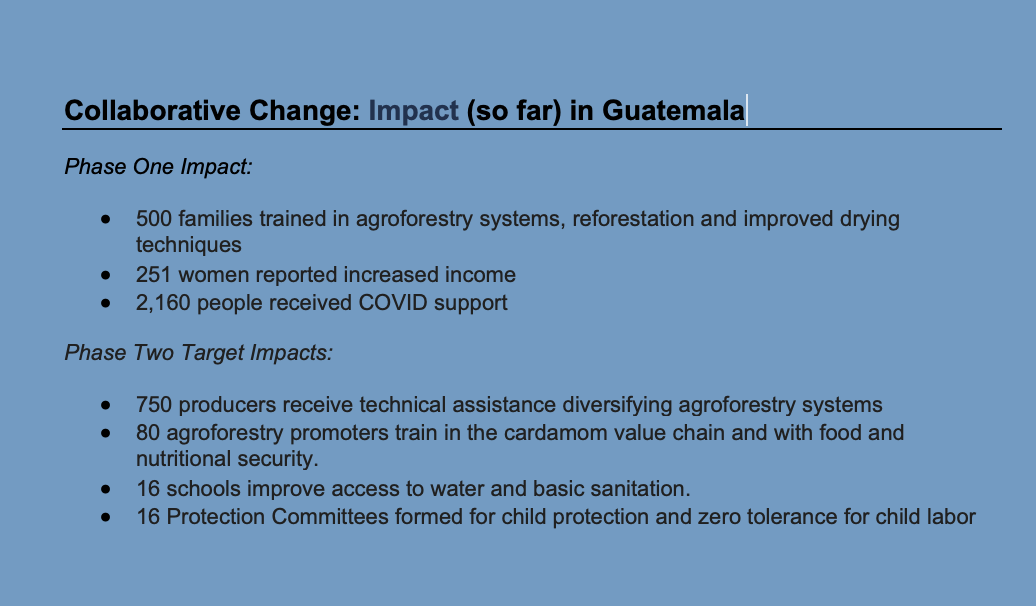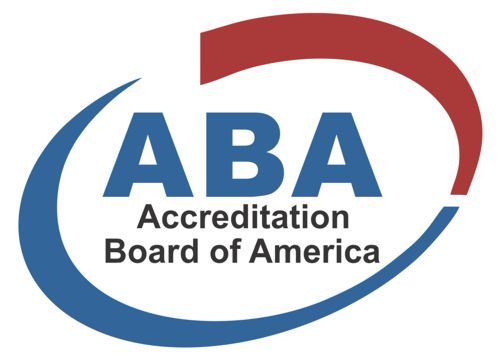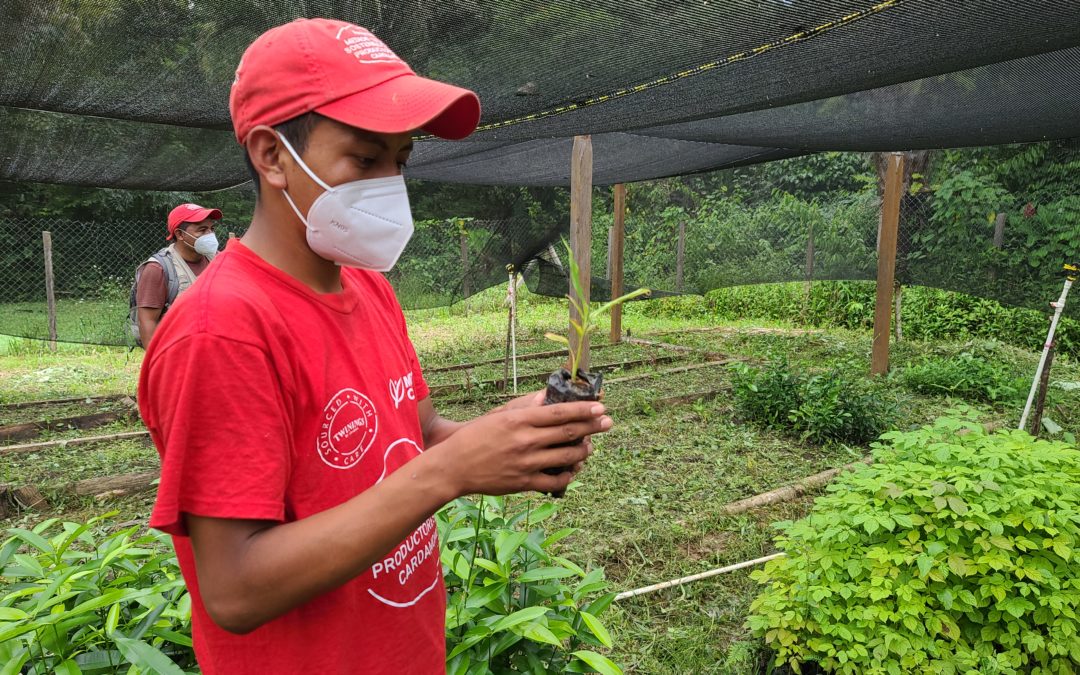After hearing about new environmental disasters seemingly every day this summer, those of us working in sustainability only feel increasing urgency to do more, faster. Yet finding opportunities to enact change quickly is a challenge. The traditional model of enacting sustainability projects, across industries, requires a significant amount of work merely to scope and plan an intervention, negotiating between and coordinating with multiple third parties, before action can be taken. Given the current environmental crisis, finding ways to bring about change quickly is nothing short of imperative. Pre-competitive partnerships offer a compelling way for firms to keep pace.
In the tea industry, our challenge is daunting on paper: We at Yogi Tea source over 150 botanicals from around the world, some in small quantities from remote areas. We’ve made great strides, including foundational work such as achieving farm-level transparency in over 90 percent of cases, but even with a diverse set of sustainability initiatives, executive support, healthy budgets and engaged consumers, we know we aren’t alone in feeling that we need to do more.
That realization — that we aren’t alone — holds great potential. After all, we are not the only tea company, and certainly not the only tea company interested in advancing sustainability. We are not the only ones sourcing these ingredients — and not even the only ones reaching out to remote areas for esoteric ingredients. If we spread the work over multiple companies, all of whom are striving for the same sustainability outcomes, the prospect for rapid impact becomes brighter.

![]()
![]()
![]()
![]()
Here’s an example, from our experience, about how collaborations can expedite impact: After a carbon emissions audit, completed in June 2021, we discovered that cardamom, a mainstay ingredient in many of our teas, was having a significant effect on our overall footprint: Deforestation, linked to archaic drying processes, was multiplying impacts such that cardamom’s footprint was twice that of our second-worst contributor. Follow-up research found that carbon was far from cardamom’s only negative impact. Social and economic problems pervaded the entire supply chain, particularly in Guatemala, our main sourcing destination. Targeting cardamom for an intervention in 2022 was a top priority.
Instead of spending years planning our own project, we opted for a collaborative approach. As of 2021, Guatemala was the world’s top cardamom exporter. What was proving to be a challenge for us was likely to be difficult for other tea firms as well. To create impact quickly, we only had to find a willing partner hoping to accomplish the same things we were. Twinings had already developed and completed the first stage of a powerful, holistic sustainability intervention in Guatemala in partnership with Mercy Corps, and following a joint trip to see what was happening on the ground, we joined as sponsors for stage two. It was a win for everyone: Our funding supported and expanded an already successful project; changes could be felt far more quickly than if we designed a separate project to accomplish the same goals; our investment went directly to impact; and all parties involved could share a nice story about putting aside our competitive differences to make a difference.
If every firm designs bespoke sustainability projects for every sustainability problem, the difficulties and expenses multiply. Corporate sustainability needs a rethink: What matters is what gets done — not who does it. Firms in any industry will be faced with similar, if not identical, sustainability challenges. It is also likely that there is considerable overlap between competitors’ sourcing and supply chains. If we are to stand any chance of implementing the kinds of far-reaching sustainability projects required to stave off further environmental disaster, we desperately need to increase the speed at which change gets made. We can do this if we work together.

Opportunities abound, and in fact third parties — organizations who don’t produce tea but work with producers to improve the industry — are already maximizing the potential of collaborative change. We at Yogi Tea are members of the Sustainable Herbs Program, the Ethical Tea Partnership and the Sustainable Spice Initiative; Twinings participates in the latter two as well, alongside their own Twinings Community Needs Assessment, which helps understand the needs of communities within their supply chains.
These organizations identify opportunities for collaboration and pair members with worthy causes. Even a foundational challenge, such as scoping impacts from our 150-plus input supply chain, is helped by these collaborations: The Sustainable Herbs Program established an emissions working group so every participant can share its knowledge, eliminating potentially hundreds of redundant and expensive scoping projects.
Doing sustainability work is no longer the brand differentiator it once was. Our approach, collectively, needs to align with this change: Shift the focus from identity to impact. What’s challenging for us is challenging for our competitors. What matters is no longer who is doing something but who gets the most done. Partnerships offer a compelling opportunity to increase the rate of change, eliminate inefficiencies in planning and implementation and bring us closer to a sustainable future. In the end, it will not matter who started a project or whose idea it was. All we can do is use every tool to do what needs to be done.
If you’d like to read the original source of this article please click here Visit Source

